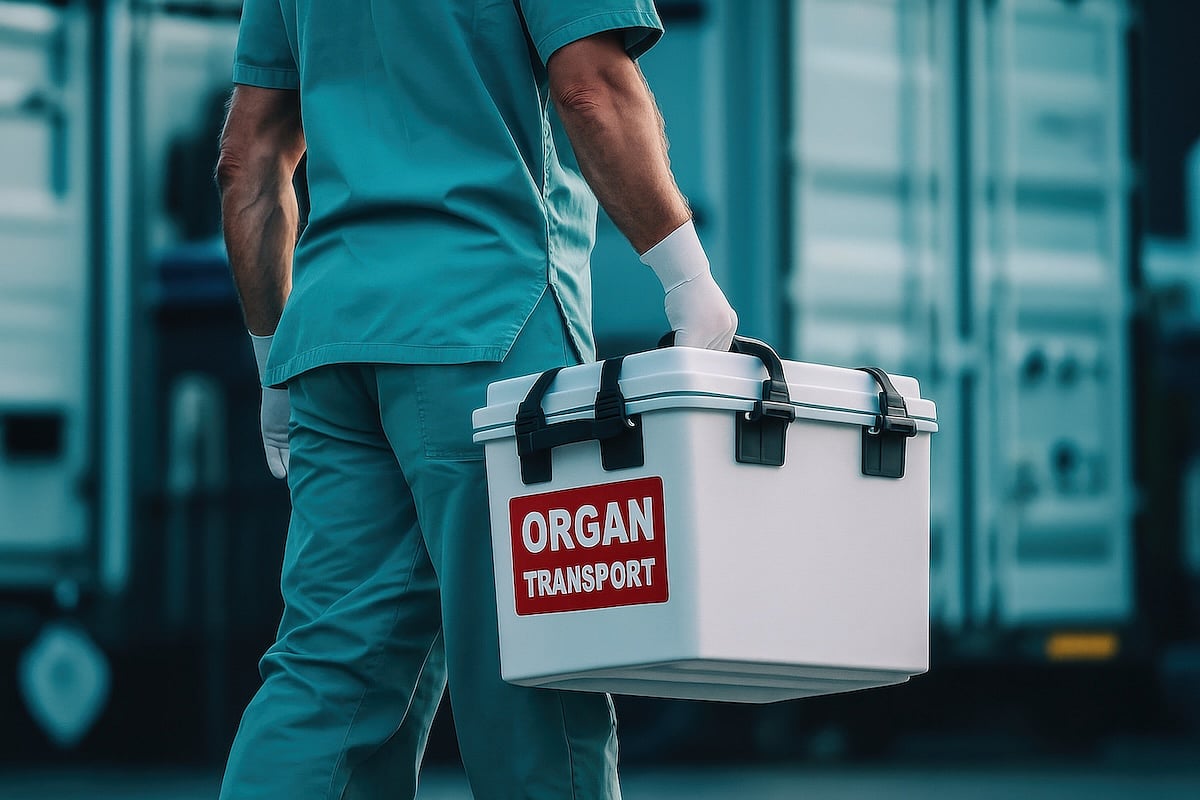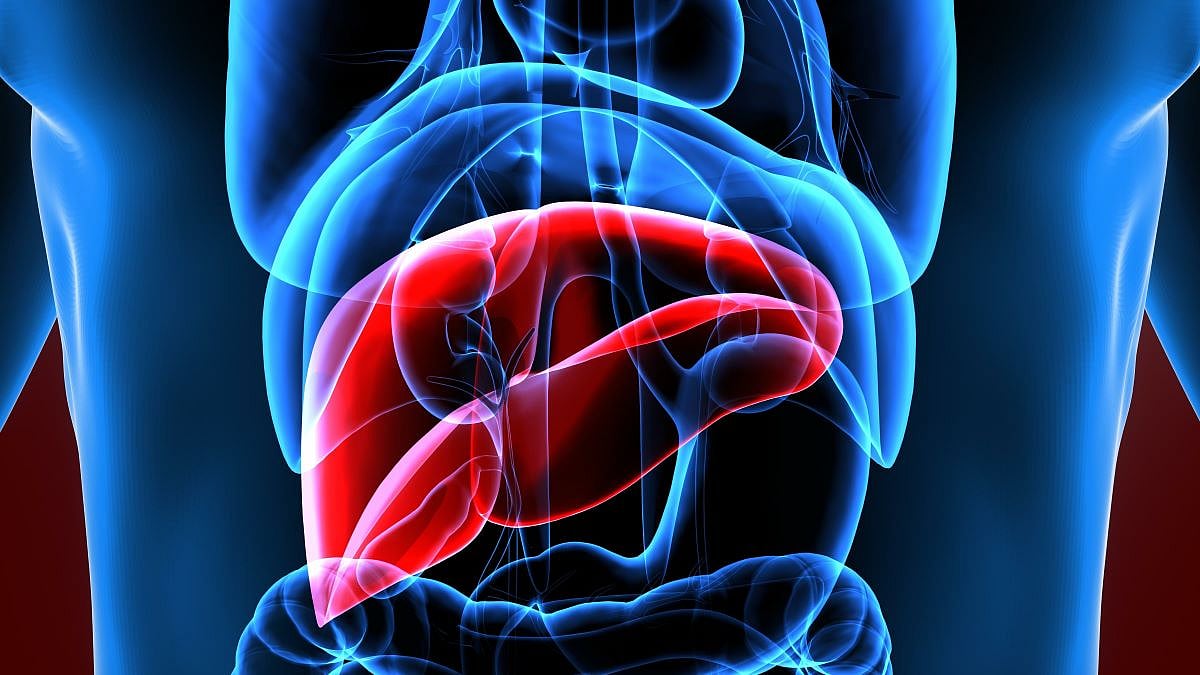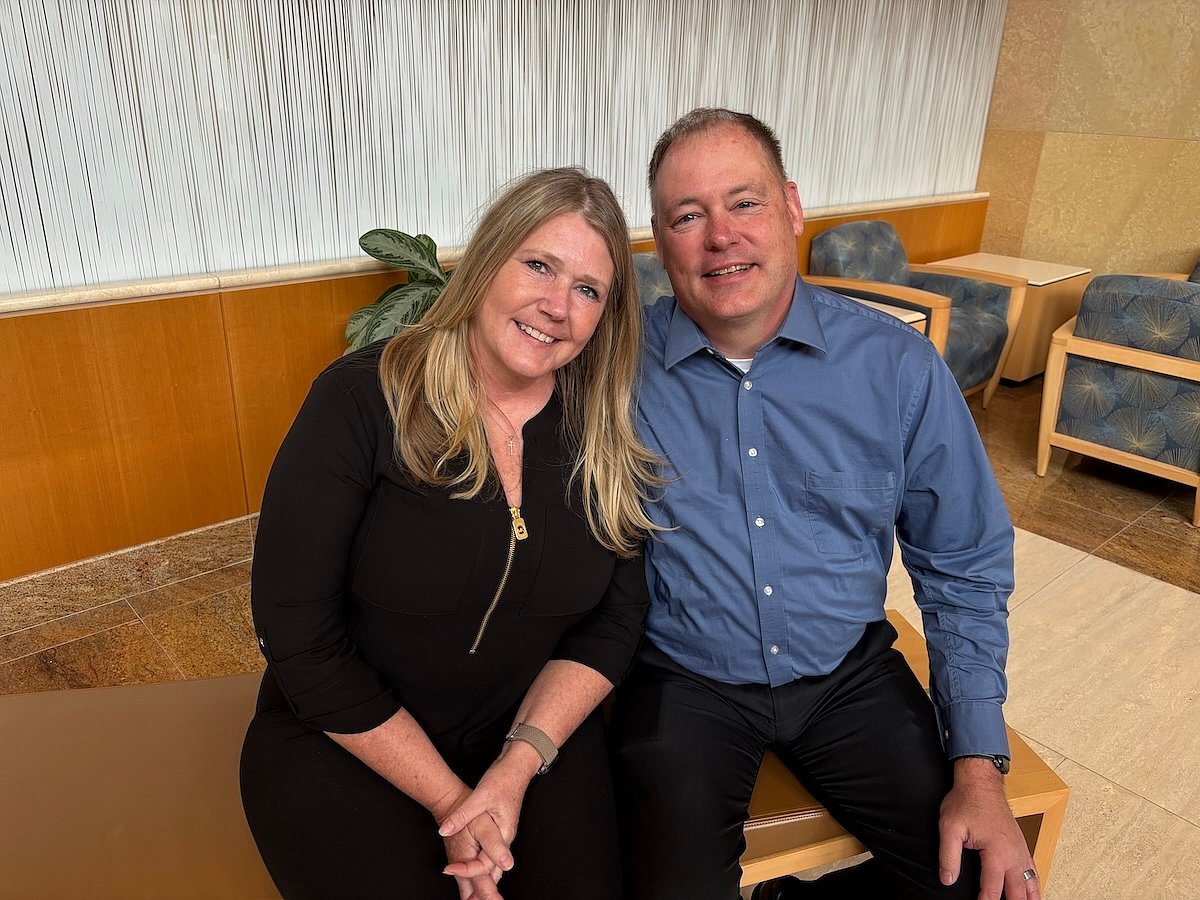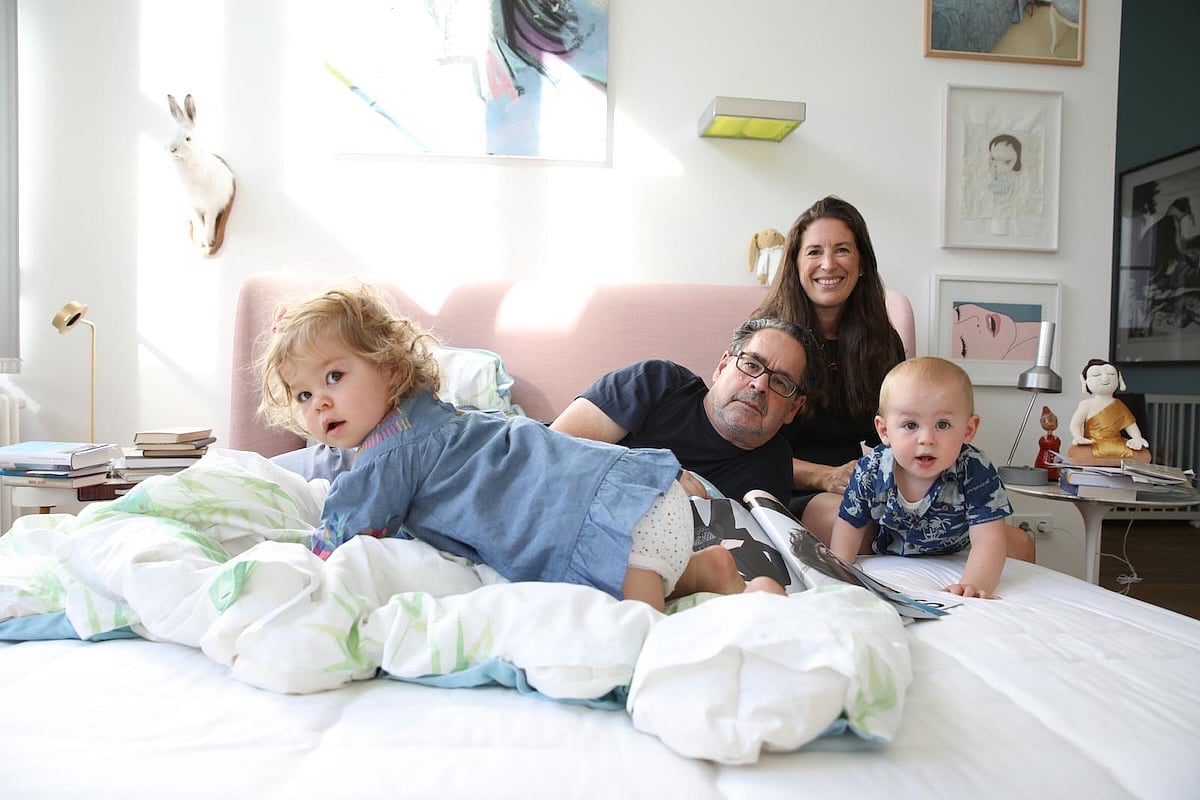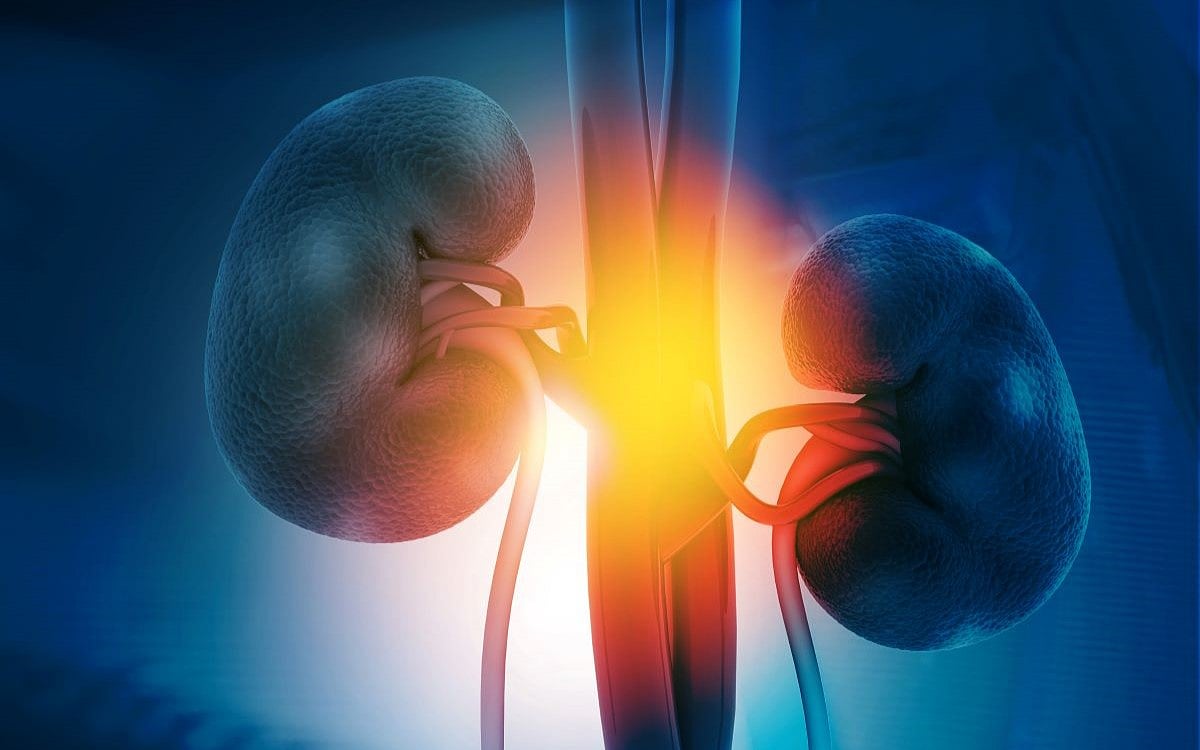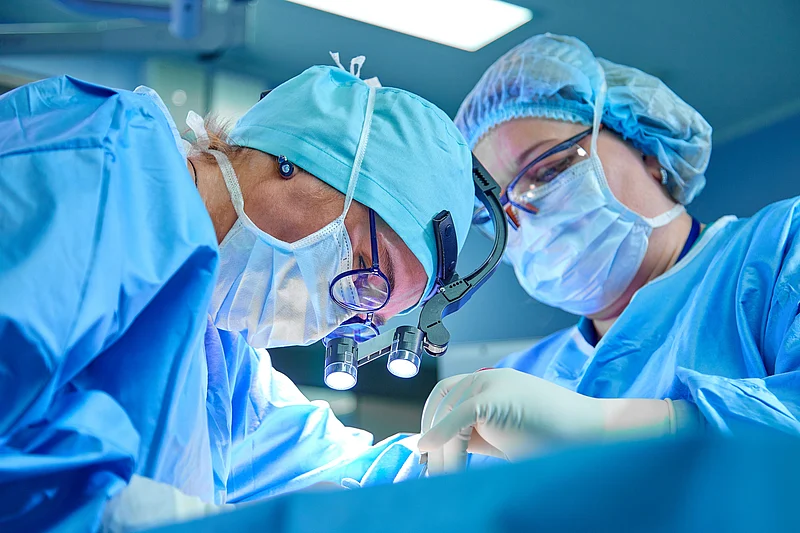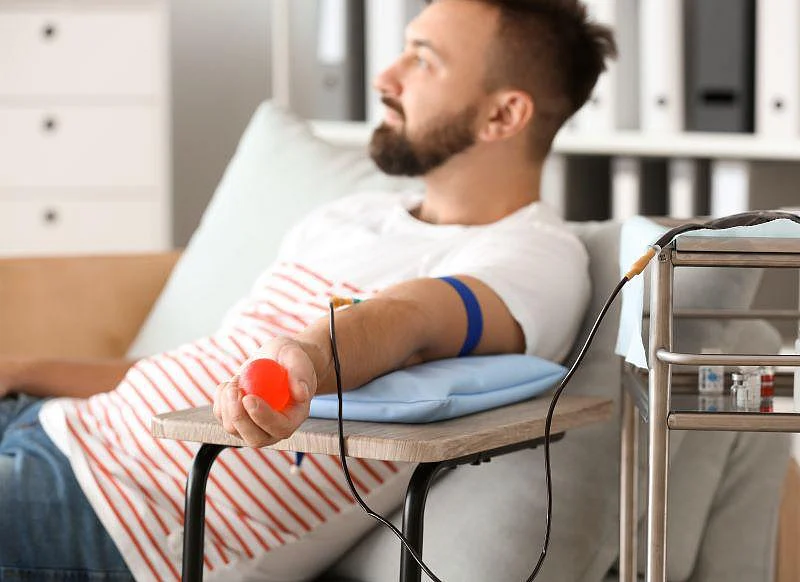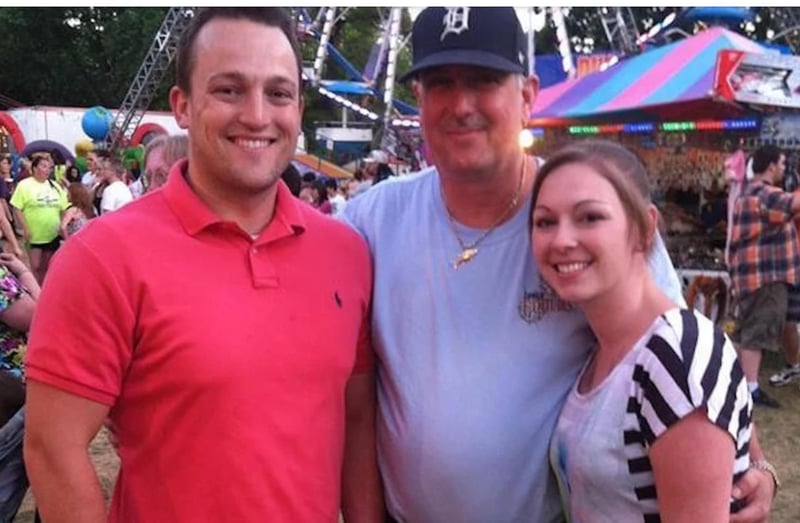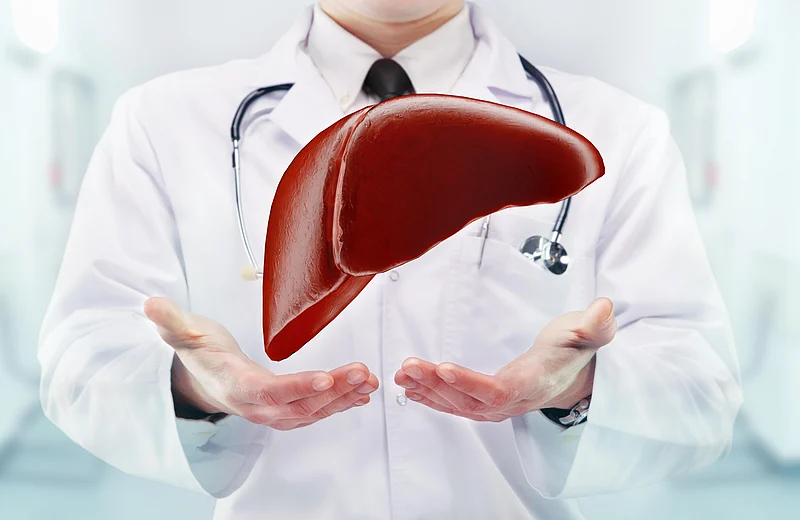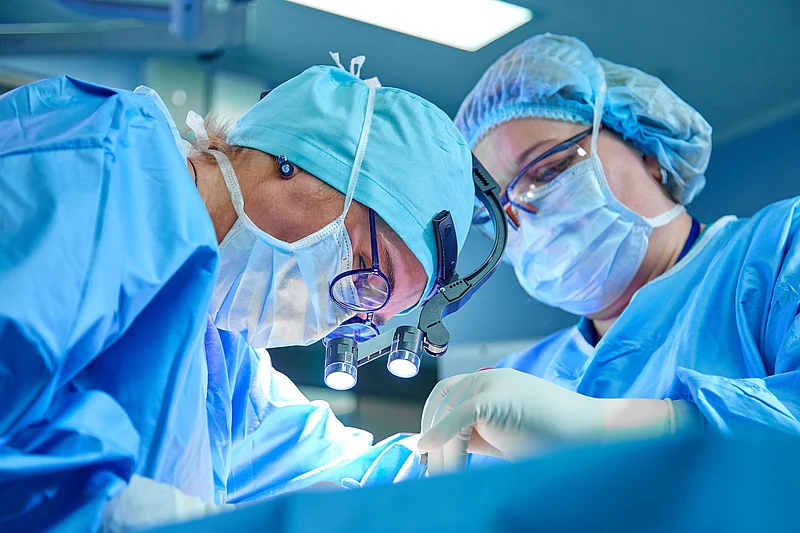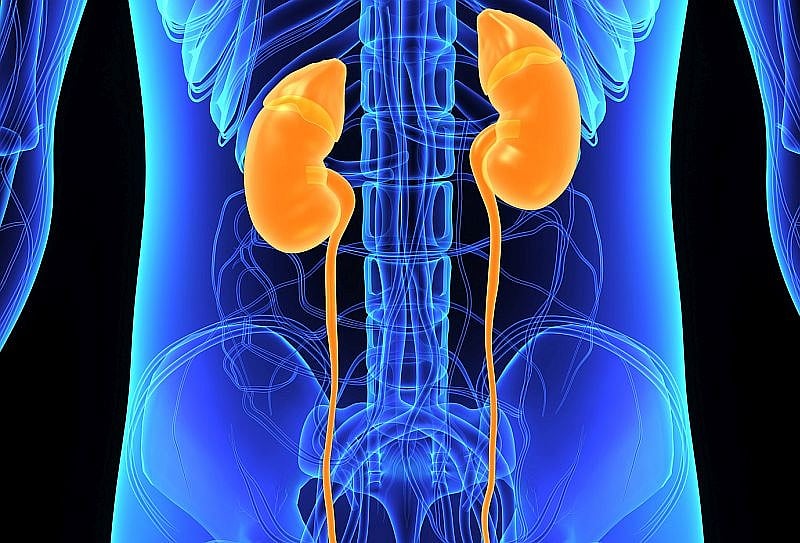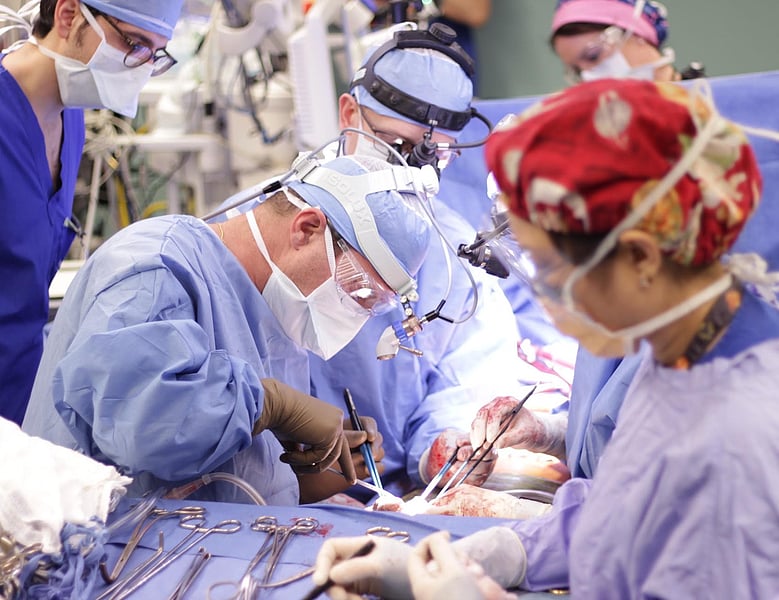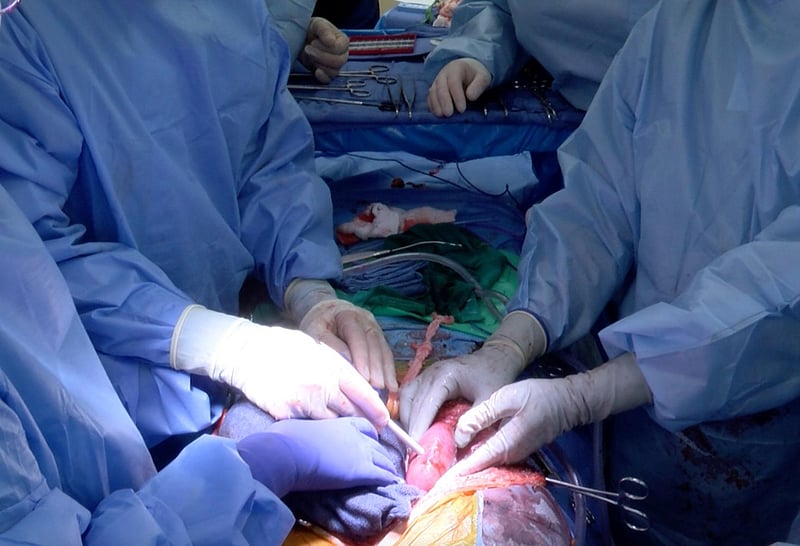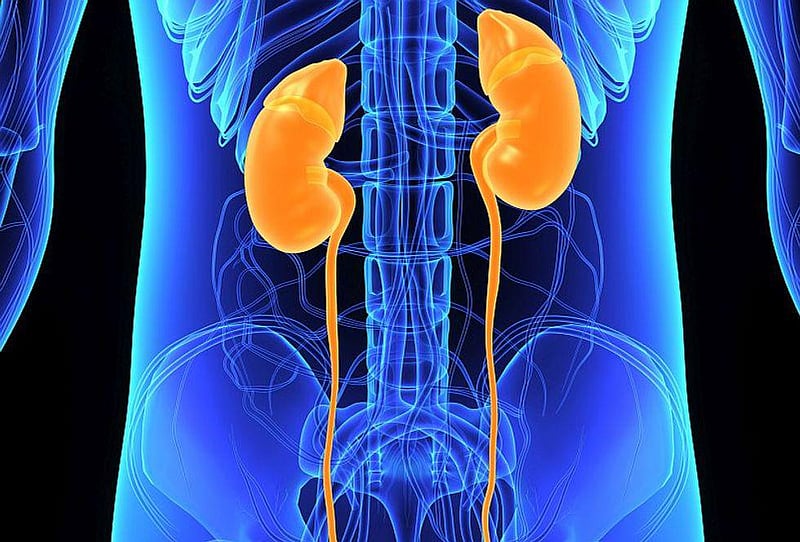Get Healthy!
Results for search "Organ Donation".
Health News Results - 36
More than 100,000 people in the U.S. are waiting for an organ transplant, and most need a kidney. Thousands die each year before a matching organ becomes available.
New federal data reviewed by the Kidney Transplant Collaborative show that 116 fewer kidney transplants were performed last year than in 2024.
While that dif...
- I. Edwards HealthDay Reporter
- |
- January 16, 2026
- |
- Full Page
A rare case of rabies linked to an organ transplant has resulted in two deaths, federal health officials announced.
The U.S. Centers for Disease Control and Prevention (CDC) reported that a man in Idaho became infected with rabies after a skunk scratched his leg in October 2024.
About five weeks later, he deve...
- I. Edwards HealthDay Reporter
- |
- December 8, 2025
- |
- Full Page
Artificial intelligence (AI) might help more donated livers reach recipients in a usable state by predicting how soon an organ donor will die after being taken off of life support, a new study says.
The time between removal of life support and death can’t exceed 30 to 45 minutes, or transplant surgeons will reject a donated liver because it’s less likely to work effectively in...
- Dennis Thompson HealthDay Reporter
- |
- November 18, 2025
- |
- Full Page
People who end their terminal illness through assisted suicide can safely make a difference in the lives of others through organ donation, a new study says.
Liver transplants performed using organs donated following euthanasia had outcomes similar to those made with donations after death from natural causes, researchers reported Oct. 26 in the
Federal health officials have moved to close down a Miami-based organ donation agency, citing unsafe practices, missed donations and critical paperwork errors.
The Life Alliance Organ Recovery Agency, part of the University of Miami Health System, is one of 55 nonprofit organ procurement organizations (OPOs) in the United States.
These groups recover organs from deceased donors and...
- I. Edwards HealthDay Reporter
- |
- September 19, 2025
- |
- Full Page
Minnesota native Mark Welter needed a kidney transplant, but wasn’t happy that he’d be on immune-suppressing drugs for the rest of his life.
The drugs are critical to keep a patient’s body from rejecting a donated organ, but they come with many downsides: severe side effects like headaches or tremors, and increased risk of infection and cancer.
But a new approach t...
- HealthDay Reporter
- Dennis Thompson
- |
- July 15, 2025
- |
- Full Page
New guidelines for allocating donated lungs are saving more lives, a new study says.
By prioritizing medical urgency, the guidelines caused a dramatic decline in the number of people who die waiting for a lung transplant, researchers reported Sunday at the American Thoracic Society’s international conference in San Francisco.
Patients are now three times less likely to die on ...
- HealthDay Reporter
- Dennis Thompson
- |
- May 21, 2025
- |
- Full Page
The timing of Cornelia Tischmacher’s pneumonia couldn’t have been worse -- eight months after the Berlin mom gave birth to twins.
But the pneumonia just wouldn’t go away, so Tischmacher went to a doctor in January 2018. Tests revealed that the then-40-year-old had stage 3 lung cancer...
- HealthDay Reporter
- Dennis Thompson
- |
- May 12, 2025
- |
- Full Page
People with HIV can now receive a potentially life-saving kidney or liver from a donor who is also infected with the virus, according to new rules announced Tuesday by the Biden administration.
According to an announcement from the Department of Heal...
- HealthDay Reporter
- Ernie Mundell
- |
- November 26, 2024
- |
- Full Page
The risk of death associated with donating a kidney is at an all-time low, a new study finds.
A kidney donor’s risk -- already small a decade ago -- is now lower by more than half, researchers found.
Fewer than one death occurs for every 10,000 kidney donations, according to res...
- HealthDay Reporter
- Dennis Thompson
- |
- August 28, 2024
- |
- Full Page
Rick Slayman, the first person to receive a kidney transplant from a genetically modified pig, headed home Wednesday after faring so well that he was released from the hospital just two weeks after his groundbreaking surgery.
"This moment -- leaving the hospital today with one of the cleanest bills of health I've had in a long time -- is one I wished would come for many years. Now, it's ...
- HealthDay Reporter
- Robin Foster
- |
- April 4, 2024
- |
- Full Page
The second person to ever receive a transplanted pig heart has died.
Lawrence Faucette, 58, got the transplant just six weeks earlier at the University of Maryland Medical Center in an experimental procedure.
Unfortunately, the heart had been showing signs of rejection in the days before his death, CNN reported.
A new transplant method that "reanimates" donor hearts appears safe and effective, a new clinical trial has found -- in an advance that could substantially expand the supply of donor hearts available in the United States.
The trial tested an approach that allows doctors to transplant hearts from donors who have succumbed to "circulatory death" -- meaning the heart has stopped beating. Tra...
- HealthDay Reporter
- Amy Norton
- |
- June 8, 2023
- |
- Full Page
Whether the gender of a blood donor could affect the recipient's survival was an unanswered question in medicine. Until now.
"Some observational studies had suggested female donor blood might be linked with a higher risk of death among recipients compared to male donor blood, but our clinical trial found that isn't the case,"co-lead author
Far more people need an organ transplant than there are organs available.
It doesn't have to be that way.
Dr. Johnny Hong, chief of transplantation at Penn State Health's Milton S. Hershey Medical Center in Hershey, explored some of the myths about organ donation.
"We have an organ shor...
- HealthDay Reporter
- Cara Murez
- |
- April 9, 2023
- |
- Full Page
A single nonprofit has what amounts to a monopoly over all organ transplants performed in the United States, but the federal government said Wednesday that it plans to change that.
The Health Resources and Services Administration (HRSA), which has contracted with the United Network for Organ Sharing (UNOS) to run the Organ Procurement and Transplantation Network for 37 years, announced ...
- HealthDay Reporter
- Cara Murez
- |
- March 23, 2023
- |
- Full Page
Massachusetts legislators have proposed a bill that would allow prison inmates to donate their organs or bone marrow as a way to trim the length of their sentence.
While some experts wonder about the ethics of such a law and whether it would even be allowed under federal law, a Democratic sponsor of the bill,
- HealthDay Reporter
- Cara Murez
- |
- February 9, 2023
- |
- Full Page
A new way of allocating donor lungs that eliminates geographical restrictions could save more lives, new research suggests.
In early 2023, the current U.S. system, which looks for compatible candidates within a fixed radius, will be replaced by the Composite Allocation Score. The new score will prioritize a candidate's medical needs.
"The importance of removing the geographical barr...
- HealthDay Reporter
- Cara Murez
- |
- January 9, 2023
- |
- Full Page
Once a year, giant motorcycle rallies ride into places like Daytona Beach, Fla., and Sturgis, S.D., bringing hundreds of thousands of people, an economic boost -- and a wave of crash-related deaths.
That means more organs available for donation and the need to be prepared, according to a
The difference between age 69 and age 70 is, of course, just a single year.
Yet, organizations that receive organs for transplant patients are less likely to choose one from the older donor, a new study finds.
American organ procurement organization...
- HealthDay Reporter
- Cara Murez
- |
- November 21, 2022
- |
- Full Page
Less than a year after the first-ever transplant of a pig heart into a human patient, doctors are reporting that the heart showed unexpected changes in its electrical system before the recipient ultimately died.
The changes are not believed to have contributed to the patient's death. But experts said that the observation will help in preparing for any such transplants in the future.
- HealthDay Reporter
- Amy Norton
- |
- October 31, 2022
- |
- Full Page
Thousands of people die every year while waiting for a liver transplant. Living-donor transplantation holds the potential to save many of these lives, yet remains underused in the United States.
During the procedure, a portion of a donor's liver is removed and transplanted into a person with liver disease. The donor's remaining liver returns to its normal size and capacity within a few mo...
- HealthDay Reporter
- Denise Mann
- |
- September 27, 2022
- |
- Full Page
Children who need kidney transplants have better long-term outcomes when the donor is a living person and not someone who has died and donated organs, a new study finds.
"The findings of our study should lay to rest any fears and concerns that centers have about accepting organs from unrelate...
- HealthDay Reporter
- Cara Murez
- |
- August 17, 2022
- |
- Full Page
Organs from donors who died of drug overdoses helped keep the number of U.S. liver transplants steady during the first year of the COVID-19 pandemic, a new study finds.
"When the pandemic began, we saw no decline in liver transplants, which seemed surprising since many surgeries were canceled or postponed," said lead author Peter Lymberopoulos, a fourth-year medical student at St. George'...
- HealthDay Reporter
- Robert Preidt
- |
- May 23, 2022
- |
- Full Page
Even before the pandemic, the demand for donor kidneys far exceeded supply. That shortfall only worsened when hospitals started refusing to use kidneys from COVID-positive donors.
- HealthDay Reporter
- Alan Mozes
- |
- May 13, 2022
- |
- Full Page
If you're thinking about donating a kidney, new research could alleviate your concerns.
"The results of this study are extremely reassuring for individuals who are considering being living kidney donors. We found that this lifesaving surgery, when performed at experienced transplant centers, is extremely safe," said study co-author Dr. Timucin Taner, chair of transplant surgery at Mayo Cl...
- HealthDay Reporter
- Robert Preidt
- |
- April 29, 2022
- |
- Full Page
For those waiting during the pandemic for a new kidney or liver, new research is reassuring: Organs from deceased donors who had COVID-19 did not cause infection in recipients and posed no risk to health care workers.
In a study that began in September 2021, the Duke University School of Medicine team assessed
The first person to receive a pig heart transplant in a groundbreaking procedure performed at the University of Maryland Medical Center in January has died, hospital officials said Wednesday.
David Bennett, a 57-year-old Marylander, suffered from severe heart disease and had agreed to receive the experimental pig's heart after he was rejected from several waiting lists to receive a human ...
- HealthDay Reporter
- Robin Foster
- |
- March 9, 2022
- |
- Full Page
It's possible to create "universal" donor organs that would eliminate the need to match transplant donor and recipient blood types, researchers report.
"With the current matching system, wait times can be considerably longer for patients who need a transplant depending on their blood type," said senior study author Dr. Marcelo Cypel, surgical director of the Ajmera Transplant Centre, Univ...
- HealthDay Reporter
- |
- February 17, 2022
- |
- Full Page
In another breakthrough for animal-to-human organ transplantation, U.S. researchers say they've transplanted two genetically modified pig kidneys into a living human.
The recipient was Jim Parsons, 57, a brain-dead man on life support whose family agreed to allow the surgical team at the University of Alabama at Birmingham (UAB) to use his body for this research.
The kidneys functio...
- HealthDay Reporter
- Ernie Mundell
- |
- January 20, 2022
- |
- Full Page
In a medical first, doctors from the University of Maryland have implanted the heart of a genetically modified pig in a 57-year-old man facing the final stages of heart disease.
The surgical feat, known as
You were lucky enough to receive a kidney years ago, but now it is failing. Is it better to opt for another transplant or go on dialysis?
New research suggests a second transplant may be the better option.
Kidney transplants from deceased donors function for a median ...
- HealthDay Reporter
- Robert Preidt
- |
- December 28, 2021
- |
- Full Page
A kidney grown in a genetically altered pig functioned normally after being attached to a human patient during a groundbreaking procedure performed by U.S. doctors.
If the technique proves generally successful it could revolutionize organ transplant, greatly expanding the pool of available organs.
The surgery was conducted in September at NYU Langone Health in New York City and invo...
- HealthDay Reporter
- Robert Preidt and Robin Foster
- |
- October 20, 2021
- |
- Full Page
Men and women have similar reasons for becoming -- or not becoming -- an organ donor, according to a new study. Yet women appear more willing to donate their organs to family members or strangers.
The results, published Sept. 24 in the Journal of the American Heart Association, suggest improving communication among family members about organ donation wishes could help increase ...
- American Heart Association News
- |
- September 24, 2021
- |
- Full Page
Here's some hopeful news for those who have kidney transplants: Long-term survival rates have improved over the past three decades, a review shows.
"There has been a gratifying improvement in kidney transplant survival, both for patients and the kidney graft itself, from 1996 to the current era," said review author Dr. Sundaram Hariharan, a senior transplant nephrologist at the University...
- HealthDay Reporter
- Robert Preidt
- |
- August 24, 2021
- |
- Full Page
The U.S. Food and Drug Administration plans on Thursday to authorize a third "booster" shot of coronavirus vaccine for people with weakened immune systems, as the highly contagious Delta variant surges across the country.
Expanding the emergency use of the Pfizer and Moderna vaccines should help protect those patients who are considered most vulnerable to COVID-19 infection and most likel...
- HealthDay Reporter
- Ernie Mundell and Robin Foster
- |
- August 12, 2021
- |
- Full Page

